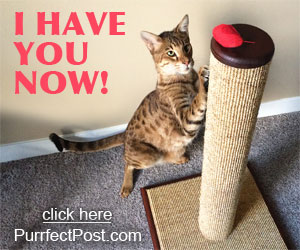What Should You Do If Your Cat's Food Is Recalled?

With hundreds of pet food companies manufacturing food and treats for cats, food recalls are bound to happen. Still, when it's your cat's food that's affected, it can be quite scary, and you may not know what to do.
What Does a Food Recall Mean?
The US Food and Drug Administration (FDA) monitors our nation's human and pet food supplies. Manufacturers also batch test their products continuously. A cat food or treat recall occurs in one of three instances:
- A manufacturer's own spot test has revealed the presence of a contaminant in a batch of their product. This may be bacteria, foreign objects, or another potentially toxic substance. The company may voluntarily recall this lot of product to ensure that no cats are sickened.
- The FDA has found the presence of a contaminant in one of their spot tests of a company's product or they have received enough consumer complaints about a food to request that the company voluntarily recalls the product.
- The FDA has enough evidence that there is a problem with a food that they have ordered the company to recall the product.
If your cat's food or treats are recalled, follow the tips below to help ensure that your cat is as safe as possible.
Check to See If the Specific Bag of Cat Food or Treats That You Have Has Been Recalled
Just because your cat's brand of food is on a recall list doesn't mean that the specific bag or box that is in your home has been recalled. Food is manufactured in batches, or lots, and generally only certain lots will be recalled. This is because the problem that occurred to contaminate the food probably only happened during one specific time period, when a certain lot was being prepared. When a recall is announced, the UPC codes, "best by" dates, lot numbers, and package sizes that are affected are usually all listed as identifiers to help you determine if you have recalled product in your home.
The following websites are helpful for finding up-to-date information about current recalls:
This is the FDA's recall list, and it includes human as well as pet food recalls: www.fda.gov/Safety/Recalls/ucm453661.htm
This is the American Veterinary Medical Association's recall list, and it only includes pet food recall information: www.avma.org/news/issues/recalls-alerts/pages/pet-food-safety-recalls-alerts.aspx
It is a good idea to routinely monitor pet recall lists because not all recalls will be reported on in the news. The following websites are great ones to bookmark and check frequently: www.fda.gov/Safety/Recalls/ucm453661.htm
www.avma.org/news/issues/recalls-alerts/pages/pet-food-safety-recalls-alerts.aspx
Stop Feeding the Recalled Food
If you find that you have recalled food or treats in your home, stop feeding it to your cat immediately. Under normal circumstances, you should not change your cat's diet quickly because it can cause gastrointestinal upset, but this is one time that you may not be able to avoid it. You can try to mitigate the effects of the sudden diet change by adding some canned pumpkin (NOT pumpkin pie mix) for a few days to the new diet that you choose for your cat.
Keep a Small Amount of the Recalled Food
While you'll want to throw away the majority of the recalled product, keep a small amount in an air-tight container in the freezer. This way, if your cat develops a problem that may be related to it, your veterinarian can send it to the lab for testing. It is also a good idea to take pictures of the food bag or box, including the UPC, lot number, and best by date.
Watch for Signs of Illness
The recall alert will explain the body systems that might be affected by the contaminant that is suspected to be in the recalled cat food along with the signs that may appear in the cat. Watch your cat closely for those and any other signs of illness. Call your veterinarian at the first indication that your cat may be sick, and explain that he ate recalled food.
Call the Manufacturer
If you are in possession of recalled cat food, call the manufacturer to report it. You may have to leave a message because they are likely to be busy with incoming calls. The company may reimburse you for the recalled product, and it's good to have a report started in case your cat does end up getting sick.
A Note on Homemade Diets
Some people may feel so nervous about cat food recalls that they consider feeding their cat a homemade diet. This is not usually a good idea. Cat nutrition is complicated and delicate, and it can cause serious health problems if the diet is not properly formulated. If you do decide that a homemade diet is best for you and your cat, be sure to get a recipe from your veterinarian or a veterinary nutritionist, and follow it exactly.
Now that you know the basics about cat food recalls and how to handle them, you will feel calmer and more in control if you hear the dreaded news that your cat's food or treats have been recalled.
You May Also Like These Articles:
How To Take Your Cat To The Vet
How to Be Prepared for Your Cat's Veterinary Bills
How To Know When Your Cat Is Sick
Foods Toxic to Cats - Slideshow
Notice: Ask-a-Vet is an affiliated service for those who wish to speak with a veterinary professional about their pet's specific condition. Initially, a bot will ask questions to determine the general nature of your concern. Then, you will be transferred to a human. There is a charge for the service if you choose to connect to a veterinarian. Ask-a-Vet is not manned by the staff or owners of CatHealth.com, and the advice given should not delay or replace a visit to your veterinarian.





